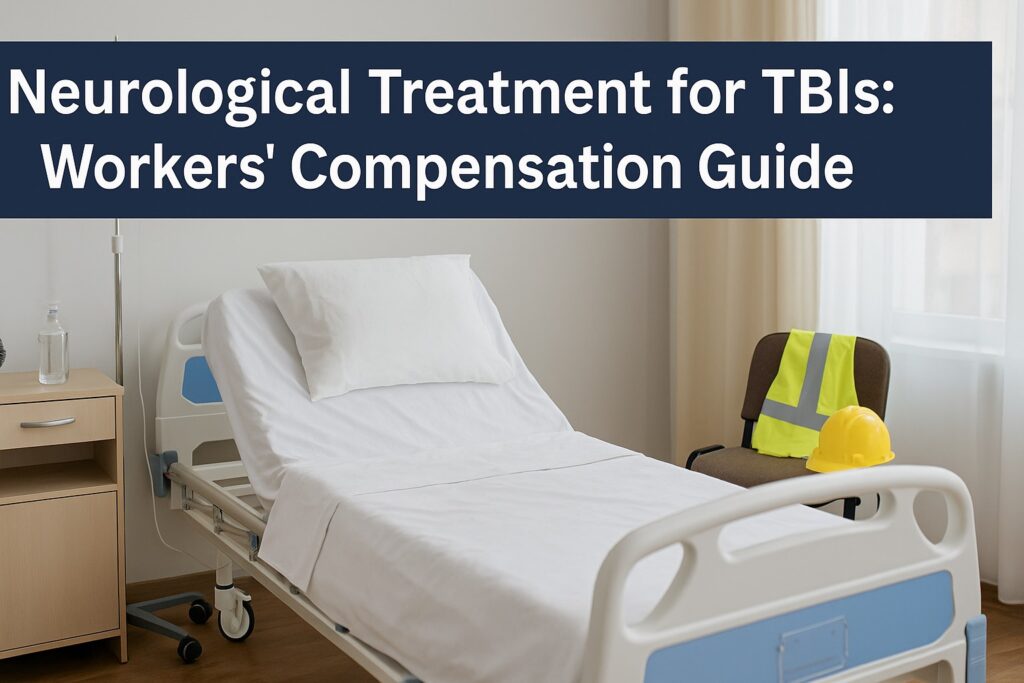
A traumatic brain injury (TBI) can have lasting effects on your ability to work, think, and live a normal life. Whether it’s a concussion, brain bleed, or more severe trauma, proper neurological care is critical for recovery. Unfortunately, getting the right treatment through California’s workers’ compensation system is often more difficult than it should be.
At Employees First Labor Law, we fight for injured workers to get the specialized care they need — including neurological evaluations, treatment, and therapy — without delay or denial. Here’s what you should know if you’ve suffered a work-related TBI in California.
What Is Neurological Treatment for a TBI?
Neurological treatment addresses damage to the brain and central nervous system. For work-related TBIs, treatment may include:
- Consultation with a neurologist
- Neuroimaging (CT scans, MRIs, PET scans)
- Neuropsychological evaluations (to assess memory, concentration, mood, and behavior)
- Cognitive rehabilitation therapy
- Medication management for headaches, seizures, depression, and more
- Speech and occupational therapy
- Psychiatric care for depression, anxiety, or PTSD
A workers’ comp doctor who is not trained in neurology may miss critical signs of a TBI or downplay your symptoms. That’s why referrals to neurologists or neuropsychologists are often necessary — and why the insurance company may resist approving them.
Why Neurological Treatment Is Often Delayed or Denied
Insurance carriers frequently delay or deny neurological care, even in serious cases. They may claim:
- Your symptoms are subjective or exaggerated
- Your CT or MRI was normal (even though TBIs can exist with normal scans)
- You don’t need a neurologist — only general care
- Your symptoms are psychiatric, not physical
- The injury was pre-existing or not work-related
These tactics are designed to save the insurance company money by avoiding costly specialist referrals and long-term treatment approvals.
Learn how we fight claim denials and delays »
How to Get a Neurologist Approved in a Workers’ Comp Case
In California, your treatment must be authorized through your employer’s Medical Provider Network (MPN) — unless the MPN is invalid or you successfully change doctors.
Steps to get neurological care:
- Report the injury and file a claim form (DWC-1)
- Request treatment authorization for neurology referral
- If denied, file an Independent Medical Review (IMR)
- Consider using a Qualified Medical Evaluator (QME) to support the need for specialized care
- Contact a workers’ comp attorney to challenge denials or invalid MPNs
What is a Primary Treating Physician and how do I change doctors? »
What If You Don’t Get the Right Care?
Without proper neurological treatment, you may suffer from:
- Ongoing memory problems or confusion
- Depression, irritability, or mood swings
- Headaches, dizziness, or balance issues
- Inability to return to work
- Worsening of cognitive function over time
These symptoms can seriously impact your life and may reduce your permanent disability rating if not properly documented and treated. A delayed diagnosis can also limit your access to future medical care and vocational rehabilitation.
Explore how EFLL supports injured workers long term »
Let EFLL Help You Access Specialized TBI Treatment
At Employees First Labor Law, we know how to navigate the workers’ compensation system and push back against insurance company games. If you’ve been diagnosed with a TBI — or believe you suffered one — don’t wait. We’ll help you:
✅ Get referred to neurologists and brain injury specialists
✅ Challenge denials of imaging, evaluations, and therapy
✅ Maximize your temporary and permanent disability benefits
✅ Hold the insurance company accountable
📩 Schedule a consultation
📞 Call us now to speak with a workers’ comp attorney



